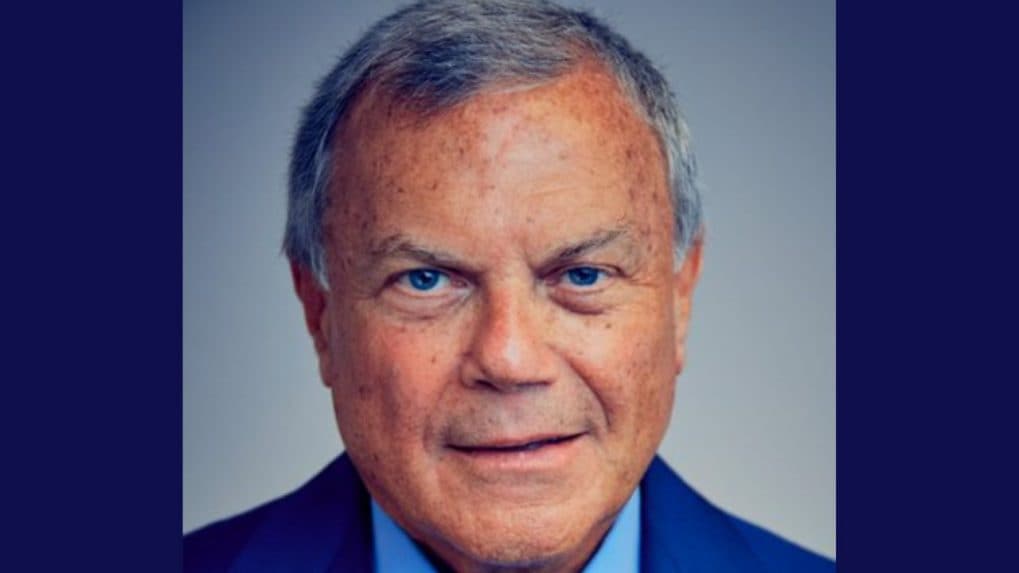EXCLUSIVE: "There is no race for Dentsu’s International business", says Sir Martin Sorrell of S4 Capital
Sir Martin Sorrell weighs in on Dentsu’s search for a strategic partner, highlighting the challenges of integrating international operations, the bravery of the company’s decision, and why efficiency, selective growth, and technology will define the future of advertising.
ADVERTISEMENT
Global advertising is at a crossroads, challenged by geopolitical uncertainty, evolving client expectations, and rapid technological change. Sir Martin Sorrell, Founder and Executive Chairman of S4 Capital in an interview with Storyboard18 shared his insights on Dentsu’s international strategy, IPG-Omnicom merger, global impact of tariffs and India’s emerging role as a hub for innovation and growth.
Talking about S4 Capital’s growth in India, how is Monks performing, and what’s the roadmap for expansion?
Our operation in India is relatively small, split between our agency and hub. The agency focuses on content, data, digital media, and digital transformation. We are bullish on India—the third-largest economy, the most populous country, full of talented entrepreneurs. With geopolitical tensions around China and Taiwan, India is increasingly front and center. We aim to build our business here even further.
How would you explain the decline of Dentsu’s international operations?
Dentsu has done an excellent job in Japan, but expanding internationally is very challenging. They have strong client relationships with major brands, but coordinating their global operations is difficult. I applaud their openness to seeking a strategic partner—it’s a sensible move.
What challenges might an agency face in absorbing a large organization like Dentsu International?
They have several strong assets—Aegis, Merkle, iProspect—but performance hasn’t met expectations, which is why they are seeking a partner. Absorbing such a sprawling organization—covering media buying, digital, traditional, creative—is extremely complex. Some people in India think they could acquire Dentsu International, but I don’t see that happening.
Do you think S4 Capital becomes a natural candidate to acquire Dentsu's international assets?
In terms of tech capabilities, Dentsu has some strengths, but our business at S4Capital is purely digital—it’s very different from Dentsu’s operations, both domestically and internationally. S4 Capital operates on four founding principles: being digital-only, data-driven, faster-better-cheaper, and run under a unitary brand. You have to measure that against Dentsu International, and there are a lot of differences.
But do you think there will be a race to acquire Dentsu International businesses?
Well, I don't think there is a race. Because as I said to you, this has been going on for, as best as I can determine, over two years. So, if there was a race, it's a very slow race. Dentsu has been looking for a partner for years—going back to when Tim Andree was on the board.
They had mandated an investment bank several years ago, received an offer from a private equity company for their international business, and the board and CEO declined it. Tim Andre resigned following that decision. Now, Dentsu has remandated a bank to find an international strategic partner.
Looking at the broader agency landscape, the IPG-Omnicom merger is set to finalize soon. How do you see the impact?
The merger is mostly about cost. Omnicom has had flat growth recently, and merging with IPG addresses that. They are targeting synergies of around $750 million, which will probably translate to significant redundancies—perhaps 15,000 to 17,500 jobs globally. The biggest gains are scale in the U.S. and improved media planning and buying. But beyond that, the impact, especially in India, is less clear.
Trump-era tariffs have affected global trade significantly. How do you think these changes will impact the advertising world?
Well, tariffs have definitely caused uncertainty. On top of geopolitical risks—China, Russia, Ukraine, Iran—the situation adds even more unpredictability. As we move into 2026, companies will face decisions on who bears the cost of tariffs—consumers, corporations, or a mix of both.
This environment will create a strong impetus for the growth of AI. Efficiency will become critical in a world where growth is harder to find, geographical fragmentation is rising due to geopolitical risk, inflation is persistent, and interest rates remain higher than what we’ve been accustomed to. In such a scenario, growth will be selective—which is actually a positive for India.
What advice would you give to agencies operating in India regarding navigating Trump tariffs and advising their clients?
The key points are selective growth and efficiency. Growth will be more difficult to achieve, so clients need to be very selective about where and how they expand. Secondly, efficiency is critical. This means leveraging technologies like AI, quantum computing, and blockchain to streamline operations.
So, two things: go where the growth is—which is good news for India—and achieve efficiency through technology, which again plays to India’s strengths.
Are there any downsides for India in this scenario?
Yes. AI is hollowing out the lower end of the U.S. manufacturing pyramid, which makes traditional outsourcing to India less attractive. While manufacturing may return to the U.S., it won’t necessarily increase employment because AI is taking over tasks that were previously outsourced.
However, India has superb technology talent and expertise, so it remains very well-positioned to capitalize on the global shift toward efficiency and technological solutions.

